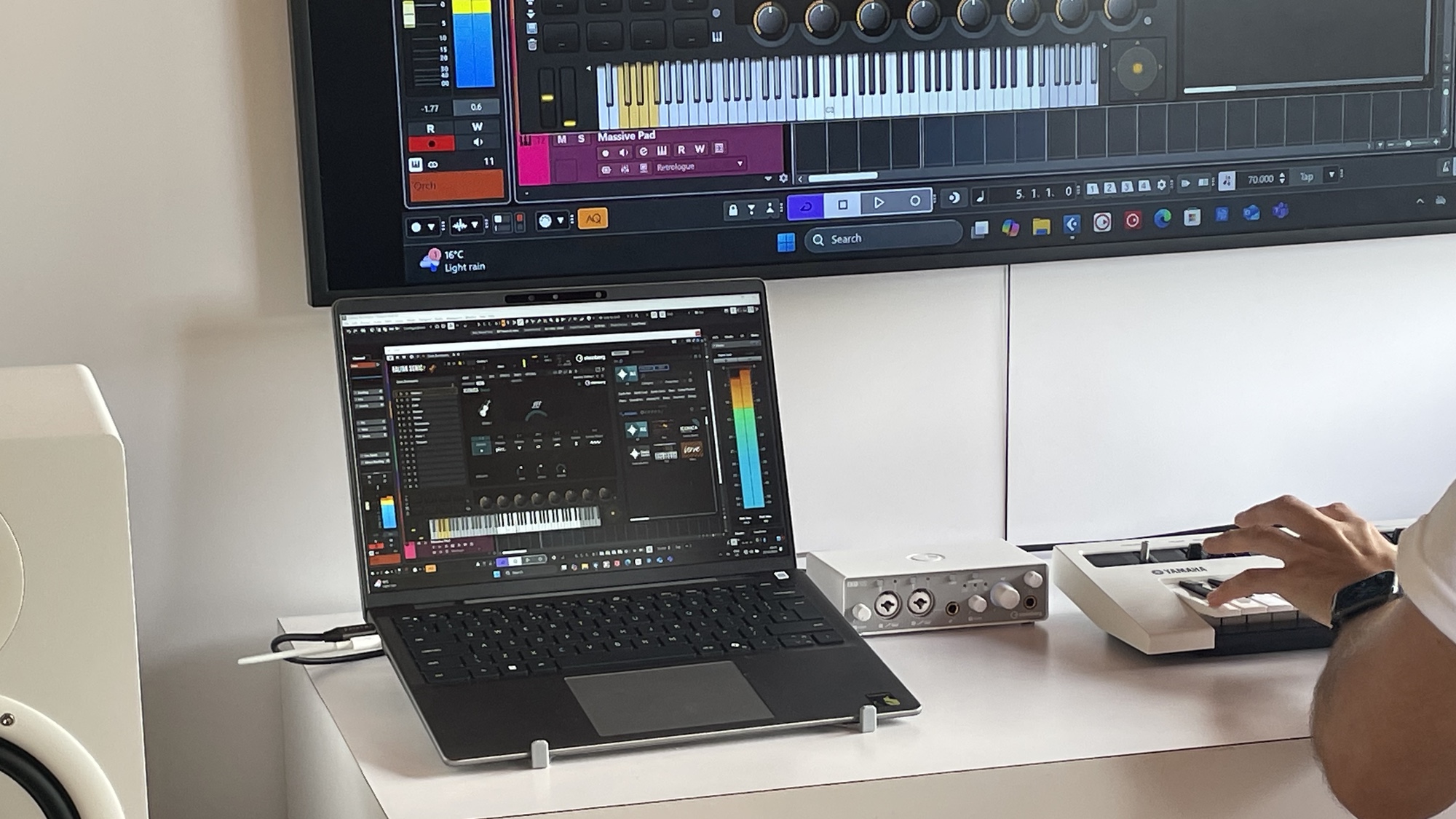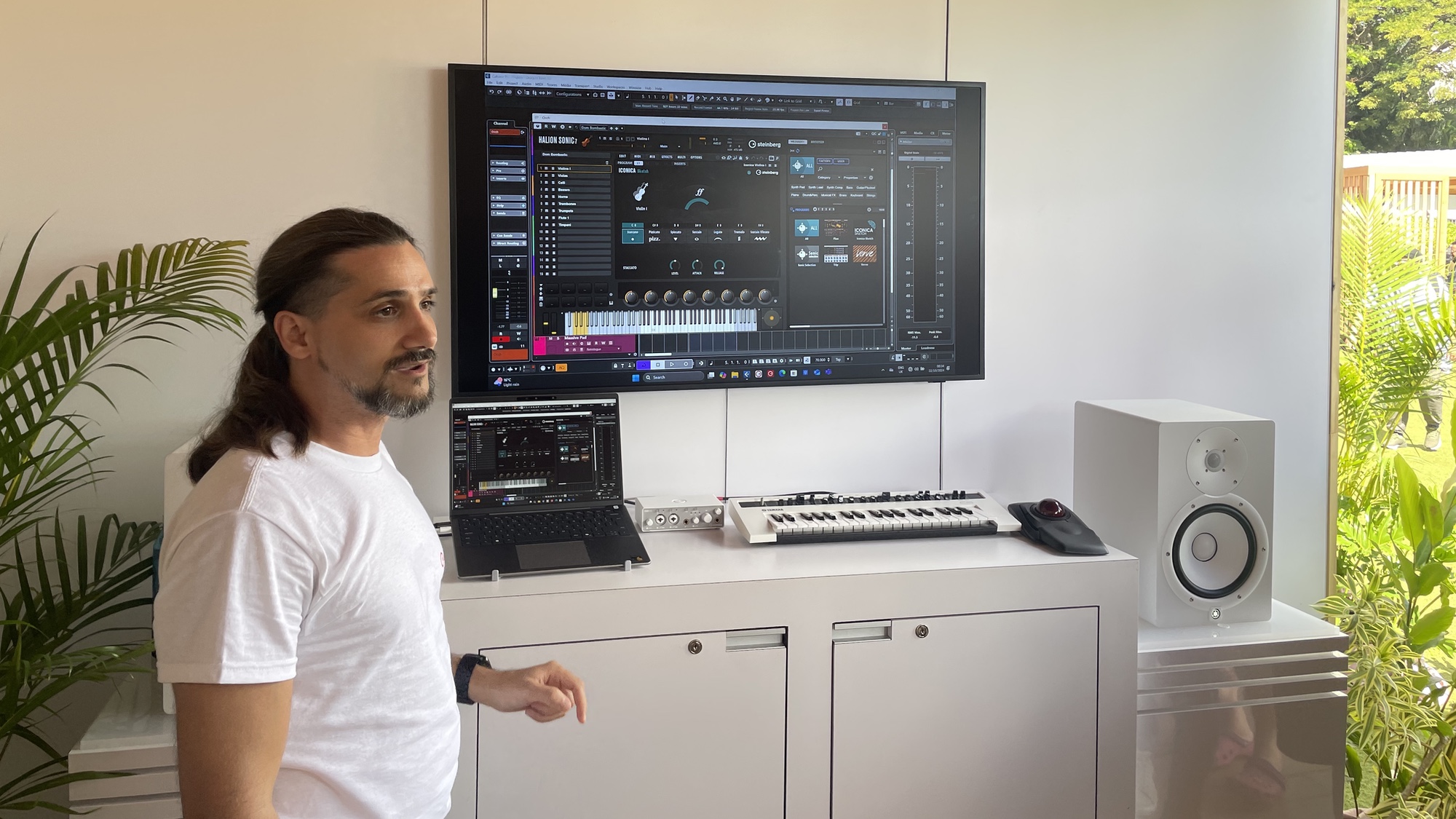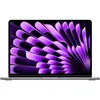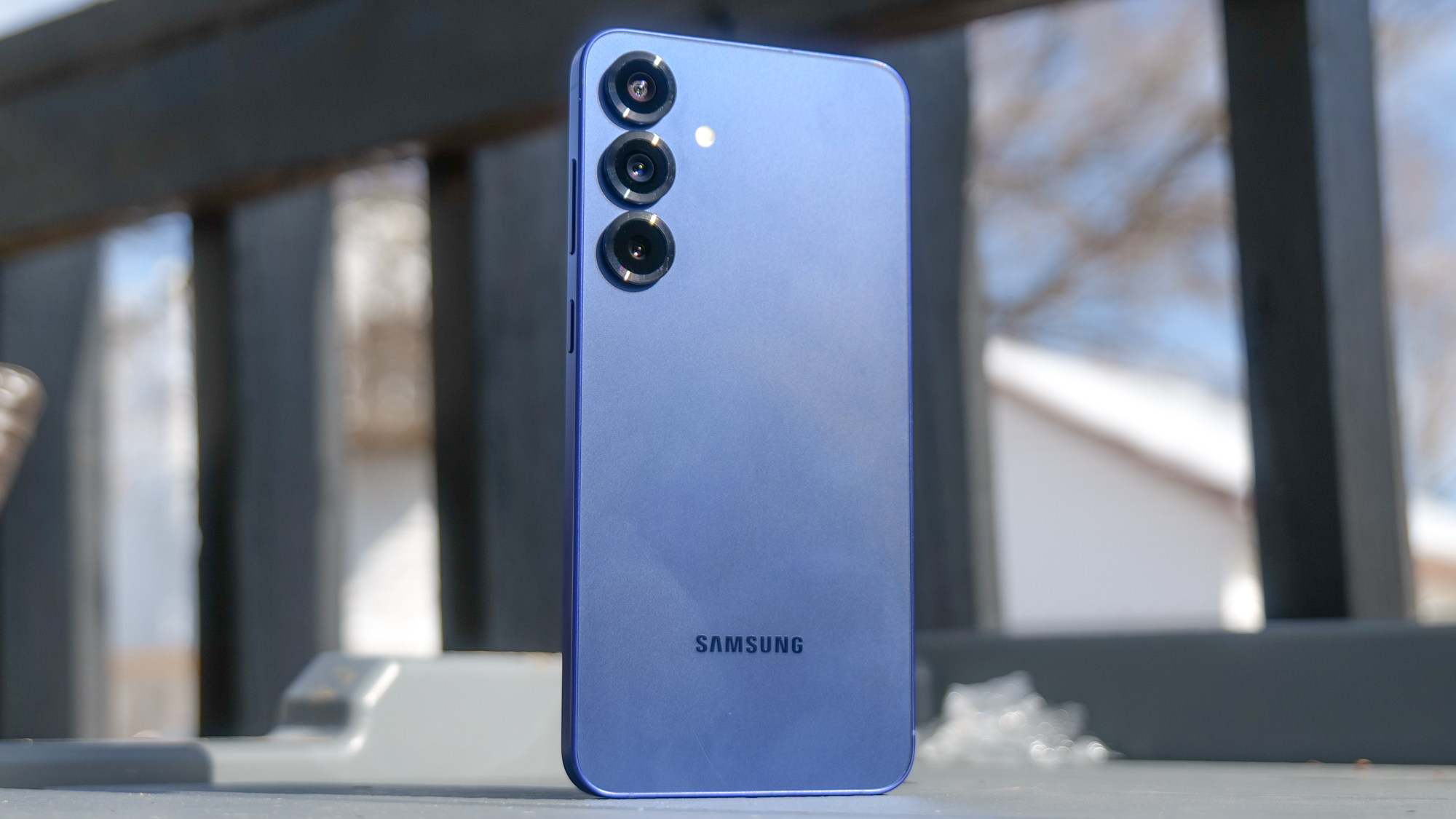Copilot Plus PCs are getting a big upgrade to catch up to Macs
This will have musicians and podcasters singing a new tune

WAILEA, Hawaii — Musicians who use digital instruments to create, mix and produce music must feel like they have to turn to Macs by default, and for good reason. Macs offer extensive support for everything from digital audio work stations to MIDI support for instruments.
Qualcomm and Microsoft, which have teamed up to build Copilot Plus PCs powered by the Snapdragon X Elite platform, want to claim their own place on the stage. "We want Copilot Plus PCs to be the place for podcasters, musicians to record and perform," said Alex Katouzian, Qualcomm's general manager for mobile, compute and XR, during the company's Snapdragon Summit this week.
To that end, new support is coming to Copilot Plus that should have musicians singing a new tune. Microsoft is bringing MIDI 2.0 support for electronic instruments, with the rewritten stack delivering high resolution and low latency. Copilot Plus PCs running on Snapdragon chipsets will be able to support this retooled MIDI stack.
Additionally, Microsoft and Qualcomm teamed up with Yamaha on a low-latency ASIO driver for USB Audio Class 2 devices in Windows. The driver lets users plug in a USB Audio Interface to their Copilot PC for capturing audio from a microphone or instrument. Focusrite and Steinberg are set to release optimized drivers for Copilot Plus machines running Snapdragon as well.
We're also getting preview versions of the Cubase and Nuendo by Steinberg digital audio workstations that run natively on Snapdragon X Series-powered devices. These are high-end programs used by professional audio editors and musicians, who will certainly appreciate the flexibility of being able to run a critical app on the platform of their choice.

That was certainly the sentiment expressed by two musicians on hand to demo native support for digital audio workstations, MIDI 2.0 and ASIO drivers during the Snapdragon Summit this week in Hawaii. (I'm attending Qualcomm's annual showcase of its new products and technologies as a guest of the company.) In the demo, we saw Cubase running on a Snapdragon-powered Copilot Plus laptop, with a electronic keyboard attached to the computer as well. Off to the side, an electric guitar was also hooked up to the setup, allowing the two musicians to jam in real time.
I'm no musician, but I can recognize the importance of low-latency when you're playing an instrument through a computerized interface. When you hit that key, whether it's simulating a piano, drumset or entire orchestra, you want to hear the playback instantaneously. And that's what native support for these audio apps and interfaces can deliver, making the Snapdragon and Windows offering a more viable platform for creative professionals.
Sign up to get the BEST of Tom's Guide direct to your inbox.
Get instant access to breaking news, the hottest reviews, great deals and helpful tips.
Understandably, Qualcomm is eager to tout just how many apps run natively on its chips. Qualcomm's Katouzian noted that 90% of time people spend on CoPilot Plus machines is with apps running natively on X series chipsets.
More from Tom's Guide
- Apple M4 Mac launch date just leaked
- The best Windows laptops right now
- I've tried the new AI features of Copilot+ PCs and I'm (mostly) impressed
Philip Michaels is a Managing Editor at Tom's Guide. He's been covering personal technology since 1999 and was in the building when Steve Jobs showed off the iPhone for the first time. He's been evaluating smartphones since that first iPhone debuted in 2007, and he's been following phone carriers and smartphone plans since 2015. He has strong opinions about Apple, the Oakland Athletics, old movies and proper butchery techniques. Follow him at @PhilipMichaels.











